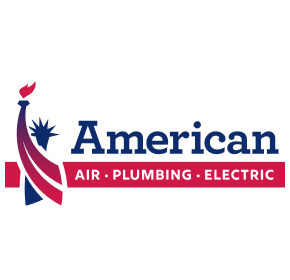Are you looking to upgrade your home from gas to electric heating? There has been a major push in recent years for homeowners to switch to electric heating in an effort to reduce carbon emissions. Switching to electric heating can also provide some other benefits as well.
The Process of Switching From a Gas to an Electric Furnace
Switching over from a gas furnace to an electric unit isn’t as difficult as you might think. If you hire an experienced home-service company, the process can often be done in just a single day or within two days, at the most. However, it really depends on where in your home the furnace is located (i.e., how easy it is to get to and if any unforeseen issues come up during the work).
The first step is usually for the contractor to call your utility company so that they can shut off your natural gas. You don’t need to have the gas shut off if you’re just swapping out an old gas furnace for a new one since the technician can just close the valve on the gas line leading to the furnace. However, when switching from gas to electricity, you’ll need to have the gas line that supplied the furnace capped if not entirely removed. A certified plumber usually does this kind of gas line work.
Once the gas is off and the gas line capped, the next step is to detach the furnace from the air handler so that it can be hauled away. Depending on the size and power of the electric furnace, you will usually need to have a new 240-volt circuit installed and wires run to the furnace. The only exception is the furnace doesn’t require more amps than your air conditioning system, which is fairly rare. If you do need a new circuit and wiring installed, this will have to be done by a licensed electrician.
When switching from gas to electric, you’ll also generally want to remove the exhaust vent that led from the gas furnace, unless you have another appliance, like a gas water heater, that uses the same flue. If it’s a conventional gas furnace, the flue likely goes up through the roof. That means you’ll also need to have a roofing company patch that area to ensure your roof doesn’t leak.
Once the old furnace is gone and all the wiring in place, the technicians will then begin to hook up your new electric unit. In most cases, you’ll need to have your air handler completely rebuilt or, at least, modified to accommodate the new furnace. It’s also a good idea to replace the blower unless you’ve already replaced it fairly recently when upgrading your air conditioning. In some cases, you may also need to replace your thermostat. If so, we highly recommend installing a smart thermostat due to the many benefits it will provide.
After the furnace is in place, wired up and connected to the air handler, the last step is for the technicians to test and calibrate it. Calibrating the furnace and blower typically doesn’t take all that long, but it’s an essential step to ensure that the furnace works effectively. Testing is also essential for ensuring the furnace is safe to use.
Furnaces: Pros and Cons of Gas vs. Electric
While it’s entirely possible to swap out your gas furnace for an electric unit, you should still think carefully about whether it’s the best option. Electric furnaces are less expensive, but all of the additional work required to switch from gas to electric means you’ll likely pay at least as much as you would just to install a new gas furnace. On the other hand, an electric furnace should last quite a bit longer than a gas unit. In warmer climates, a gas furnace should usually last 15-20 years whereas an electric furnace will usually last 25-30 years, potentially longer.
Another factor to consider is how much energy each type of furnace uses. An electric furnace will almost always be more energy efficient than even a high-efficiency condensing gas furnace. However, electric furnaces still cost more to run since they don’t heat as effectively and consume a large amount of electricity. Even in Florida, an electric furnace may draw twice as much power as your gas furnace, if not more. That said, the fact that you won’t need to heat your home all that much during the winter means there probably won’t be a big difference in your heating costs whether it’s a gas or an electric furnace.
The environmental impact of your heating system may also be something you want to think about. Many people think electric furnaces are cleaner since they don’t produce carbon dioxide, like gas furnaces do. While this is true, you also have to consider all of the carbon emissions that are emitted to produce the electricity needed to run the furnace. Since electric furnaces use so much electricity, they can potentially end up having a bigger environmental impact than gas furnaces. The exception is if your electricity comes from non-carbon sources, like solar, wind, hydroelectric or nuclear.
One final factor to think about is safety. Any furnace can potentially be a fire hazard if not properly maintained and inspected regularly. The good thing about electric furnaces, though, is that you don’t need to worry about carbon monoxide potentially leaking into your house, which can potentially happen with a gas furnace.
Why a Heat Pump May Be Your Best Option
If you’re considering switching from gas heating to electric, it’s well worth looking into installing a heat pump instead of an electric furnace. The main reason is that a heat pump will likely reduce your electricity use by about two-thirds as compared to an electric furnace. It will also work far more efficiently and cost much less to operate than your gas furnace does.
Another thing to consider is that switching from a gas furnace to a heat pump, compared to switching from a gas furnace to an electric furnace, requires less work. In fact, you can usually leave the gas furnace in place so that you wouldn’t need to rebuild the air handler or have your roof repaired. In this case, you’d also still have the gas furnace there just in case your heat pump ever fails during the winter. The heat pump will also likely be able to use the existing circuit that your air conditioner is on so that little to no electrical work is needed.
Another advantage of a heat pump is that it will provide air conditioning so you stay cool throughout the long, hot, humid summer months. Thus, the only time a heat pump may not be worth it is if you’ve only recently replaced your central air conditioning.
If you’re looking for an experienced, reliable HVAC company in Sanford, Oviedo or the Orlando area, look no further than American Air, Plumbing, and Electrical. We’re a family-owned company that’s been serving the community since 1987, and you can count on our NATE-certified technicians for any heating or cooling installation, repair or maintenance services. We also specialize in plumbing and electrical and are the one-stop shop for all your home-service needs. To schedule a consultation for heating installation and learn what type of new heating system is right for your home, contact us today.


